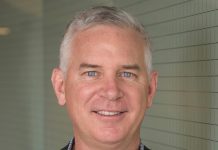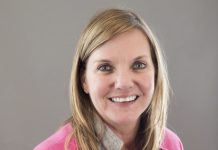Founder of LiveHelpNow Michael Kansky started his company because of his distaste for terrible customer service. This subpar service includes being put on hold for longer than 1 minute, or “being transferred from department to department only to be asked the same questions over and over again.”
With LiveHelpNow, Michael Kansky has created a customer service SaaS that should mitigate this problem. His company has “made it its focus to combat bad customer service,” which means every one of its features is “designed to help CSRs in providing the best customer service possible, eliminate wait and analyze call center performance in real time to be able to mitigate instantaneously.”
Aside from LiveHelpNow, Michael Kansky also started the HelpSquad, which allows companies to “outsource customer service to a professionally ran US Based call center, to be able to provide 5 star, 24/7/365 support to their customers.” This service would also help address customer neglect caused by a “poor CSR working environment, complicated technical support,” and “high call center turnover.”
Similar to HelpSquad and LiveHelpNow, Michael Kansky also co-founded the Big Mouth Survey in 2019. This survey allowed “brick and mortar businesses to track customer satisfaction as they leave the store and compare performance to other similar businesses in the area.”
Michael Kansky and LiveHelpNow assure customers that they will make sure companies “understand the importance of great customer service,” and the “importance of making relationships with customers.”
Check out more interviews with tech executives here.
Information technology has always been my passion. Michael Kansky, LiveHelpNow
Jerome Knyszewski: Thank you so much for joining us in this interview series! Before we dive in, our readers would love to “get to know you” a bit better. Can you tell us a bit about your ‘backstory’ and how you got started?
Michael Kansky: Information technology has always been my passion. In 1997 I immigrated to the United States from Ukraine as a refugee. I had two years of unfinished college education and an extensive interest in IT.
Upon my arrival, I began working as an IT consultant. From 1998 until 2006 I consulted about two dozen different companies as a system architect and computer engineer. Jumping between companies gave me an opportunity to gain experience in different industries. The companies I worked with varied from manufacturing to gaming to pharmaceutical industries and everything in between.
In my work as an IT consultant for various companies, I saw inadequate customer service everywhere I went. Customers were consistently not treated well, kept on hold for hours, and just generally disrespected. I witnessed call centers that worked very inefficiently.
I wanted to change that. I wanted to give companies the means to really connect with their customers and serve them in an efficient and helpful way. With my IT background, I knew I could create software that could help small businesses and their clients.
So in my after-work coding sessions, I came up with the idea that could help businesses improve their customer service. I started writing customer service software in 2005. In 2007, I started offering it for free to various companies to install on their websites and serve their customers. It was just a one-man basement operation. The software became very popular from the get-go. And that is how my first company that would eventually become LiveHelpNow was born.
Then, in 2009, I realized that my client base has grown so much, I could no longer offer the software for free. It became too expensive to support with my own funds and efforts and it required additional infrastructure. So I introduced a pricing model. I was afraid that everyone would just jump the ship.
But they didn’t.
People were more than happy to pay for the software because they have seen it in action and liked it a lot. I hardly lost any customers and the majority of users stayed on the platform. Overnight, LiveHelpNow became a profitable company.
Jerome Knyszewski: What was the “Aha Moment” that led to the idea for your current company? Can you share that story with us?
Michael Kansky: Just for fun, back in the 90s, I designed a dating website. I created a chat feature to allow the users of the site to communicate with one another. The “aha” moment came when I realized that the users might want to talk to me, the owner of the site, for tech support as well. From that idea came the notion that, perhaps, other websites and businesses would want to connect with their customers via live chat.
But I believed in what I was doing, so that faith I had in my company kept me going.
Jerome Knyszewski: Can you tell us a story about the hard times that you faced when you first started your journey? Did you ever consider giving up? Where did you get the drive to continue even though things were so hard?
Michael Kansky: I started the company before I quit my full-time job as an IT consultant. I would come home from work and then work on my company for another six to eight hours. The hardship was that I spent all of my time working, with very little sleep and no time for anything else. It was a lot of hard work. For two years, I was constantly exhausted. But I believed in what I was doing, so that faith I had in my company kept me going.
Jerome Knyszewski: So, how are things going today? How did your grit and resilience lead to your eventual success?
Michael Kansky: Things are going well today. I wouldn’t say I have grit and resilience. Those are not the things that contributed to my success. For me it’s curiosity, open mindedness, and empathy to the end user. I get curious about people’s needs and try to find a way to fulfil that need.
Jerome Knyszewski: Can you share a story about the funniest mistake you made when you were first starting? Can you tell us what lessons or ‘takeaways’ you learned from that?
Michael Kansky: The funniest mistake came not from me, but from a third party. Once I decided to start charging my customers for the solution I created, I priced it at $9 per month. I wanted to be fair as many of my clients were small businesses. I figured that if I were willing to pay $9 for something like that then everyone else would, too. A company contacted me, back then it was called Top Ten Reviews, now it’s called Bussiness.com. The company reviewed software packages and expressed interest in reviewing mine. It rated LiveHelpNow as number one in the live chat category. But the reviewers made one mistake. It put the price for my software solution at $21 instead of $9. At first, I was really angry. I started to type an email to the company, pointing out the mistake. Then I stopped myself and decided to leave it be and see what would happen. Noone complained and, as it turned out, people were willing to pay $21. That remains our monthly price to this day. The reviewers naturally helped me raise the price for the solution.
I wish someone told me that when you start a company you shouldn’t make it a company that services all. Michael Kansky
Jerome Knyszewski: Ok super. Here is the main question of our interview. What are your “5 Things I Wish Someone Told Me Before I Began Leading My Company”? Please share a story or an example for each.
Michael Kansky:
- I wish someone told me how much actual work it is. But I would still do it anyway.
- I wish someone told me how much I would need to sacrifice. Freedom and peace of mind, especially. (Well, you probably never reach a peace of mind, but at least you get closer when you’re not running a company.)
- I wish someone told me how important general managers are. No matter how small the company is, you need a manager that alleviates your daily operations. As a leader of a company you must be able to allocate a part or even the full day to focus on what’s important for the company’s vision, goal, strategy, to be the visionary of the company that you want to be. Without the general manager that is just not possible. I wish someone told me how important the organizational chart is no matter how small the company is.
- I wish someone told me that when you start a company you shouldn’t make it a company that services all. Whatever it is, you can’t think that way. You should be laser-focused on one or maximum two customer personas for whom you want to tailor your product or service. I wish someone told me that. I think if I knew that my company would be a thousand times the size of what it is now.
- I wish someone told me how important a customer success branch is for the company. What I mean by that is that it’s crucial to have people who create relationships with your customers to stay in touch on the weekly or monthly basis and get constant feedback. Not only do you decrease if not eliminate churn, but also shape your services or products for the users.
Jerome Knyszewski: How can our readers further follow you online?
Michael Kansky: They can connect with me on LinkedIn.
Jerome Knyszewski: This was very inspiring. Thank you so much for the time you spent with this!





